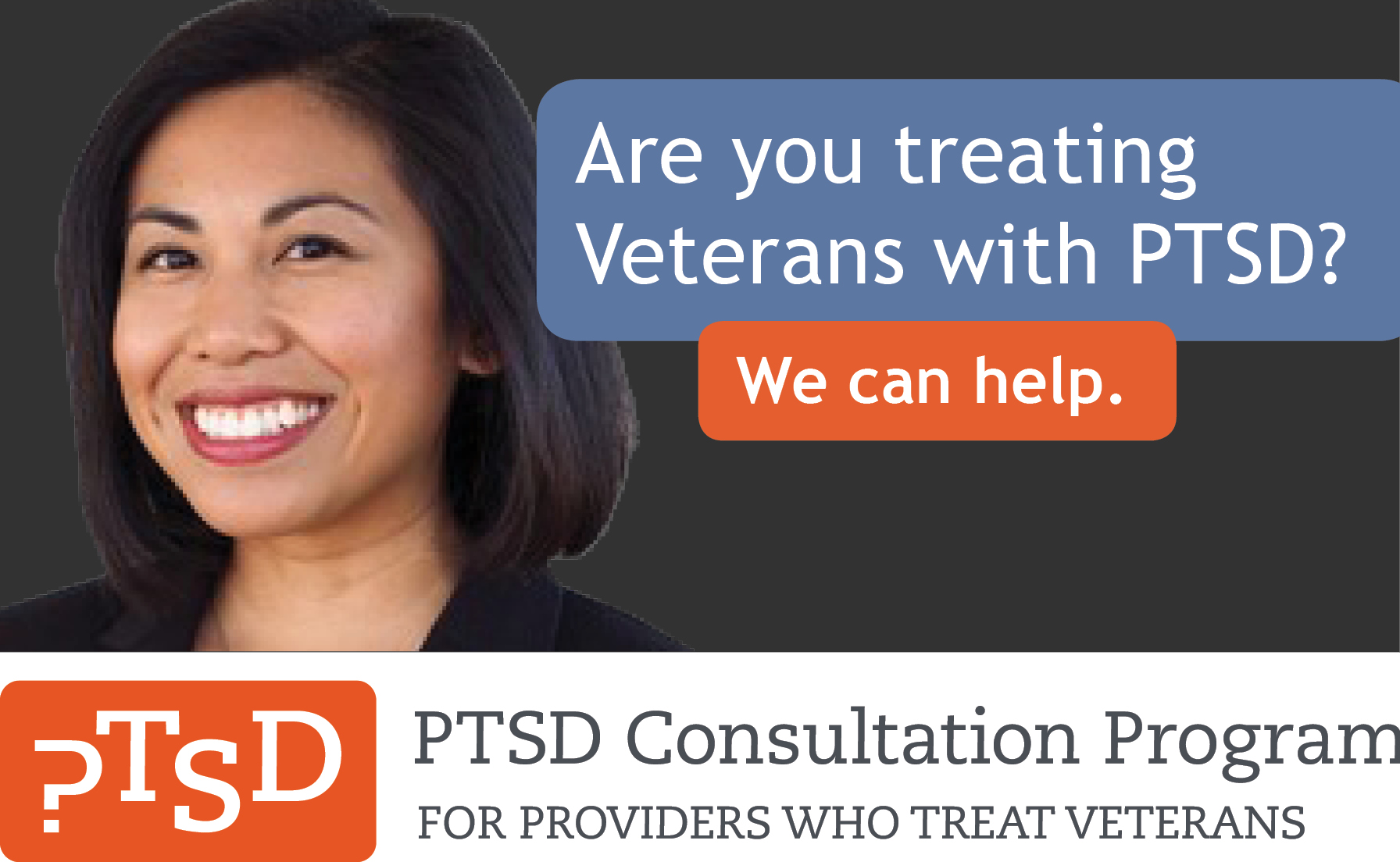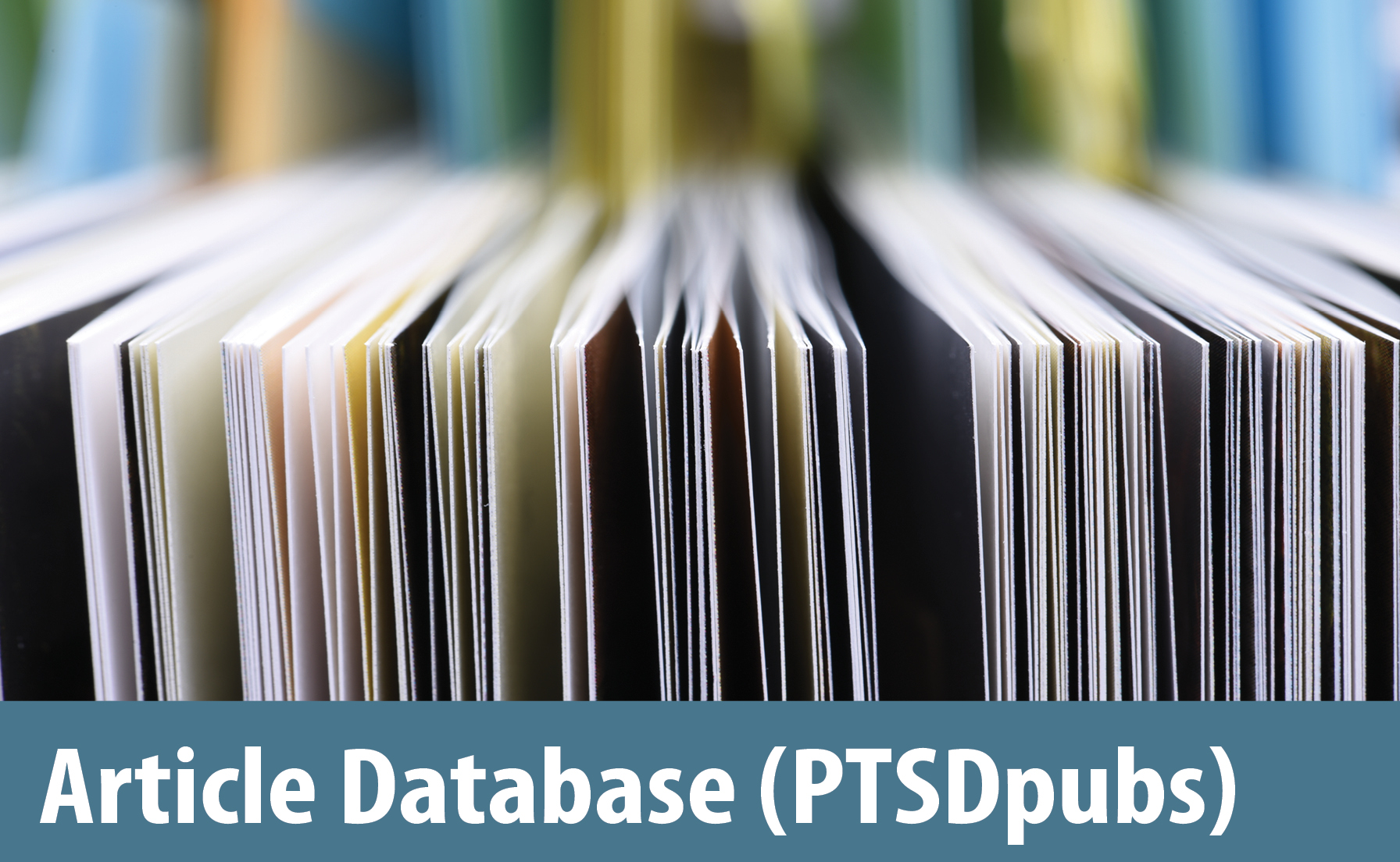Trauma, PTSD and Treatment
Trauma, PTSD and Treatment
The Trauma, PTSD and Treatment section provides information for providers on PTSD Essentials, Treatment Essentials, Types of Trauma, Specific Populations, Co-occurring Conditions, and Trauma Informed Care.
For more provider topics, please use the left navigation to access information on: Assessment, Continuing Education, the Consultation Program, the Tech into Care initiative, and Patient Education.
- PTSD Essentials
Posttraumatic stress disorder (PTSD) can occur after someone goes through a serious traumatic event. This section provides the foundation for understanding PTSD diagnostic criteria, subtypes, related diagnoses, epidemiology, and an historical overview. - Treatment Essentials
Trauma-focused psychotherapy is the most effective treatment for PTSD, and certain medications are also recommended for PTSD. Access the VA/DoD Clinical Practice Guideline for PTSD, information about effective psychotherapies and pharmacotherapy, emerging and complementary treatments, as well as emerging treatments and engagement/enhancement strategies for clinical care. - Types of Trauma
People experience stress responses following many types of traumatic events. This section provides information on various trauma types, including war, and violence, such as sexual abuse. See our separate section on Disaster Events for information and resources specific to natural and human-caused disasters, mass violence, and public health emergencies, like a disease outbreak, chemical spill, or radiation event. - Specific Populations
While there are fundamental principles of best practice for PTSD assessment and treatment that apply to all patients, understanding the experiences and needs of specific populations to help improve care. Information includes unique considerations for military, women, LGBTQ people, people of color, older adults, families, and children. - Co-occurring Conditions
More often than not, PTSD co-occurs with other issues such as depression, substance abuse, sleep problems, anger, and grief. This section provides information to help with treating these more complex presentations of PTSD. - Trauma Informed Care
Providers, other than mental health professionals, interact with people who have a history of trauma and PTSD. Materials focus on trauma and PTSD in fields such as health care (medical roles and rural providers, criminal justice, education, media, employers, and the clergy.The resources in this section include toolkits and self-care strategies.
You May Also Be Interested In

Continuing Education Online Courses
Learn from expert researchers and earn free Continuing Education (CE) credits.

























